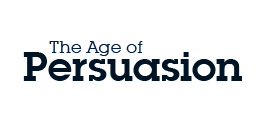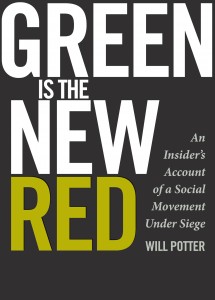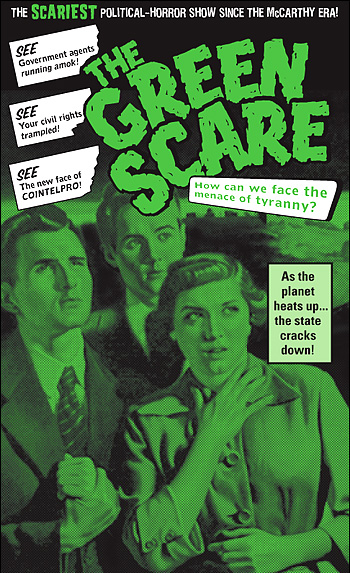Emotional transference, the ability to shift raw, experienced emotion across a range of objects and relationships, is the “knowing” behind writing, says Nathan Englander:
#DefineRhetoric Competition Update 2.0
We’ve passed our second month of defining rhetoric in 140 characters or less. Rhetoric’s been defined, re-defined, pre-defined, post-defined, most-defined, more-defined, and less-defined. It’s been a whole lotta defined. It’s an activity, clothing, and like milk. It’s a pun and a mirror and a niece! It’s even in orbit.
Before you go back to defining, enjoy some of the latest definitions we’ve gotten:
- Rhetoric is how you hope to talk your way out of a traffic ticket…HOPE. #DefineRhetoric @TheOriginalRock
- Rhetoric is like the moon. It is, at present, synchronously oriented to the rotation of another body around which it orbits. #DefineRhetoric @Schmeggelz
- Rhetoric is discourse in lingerie. #definerhetoric @soundb0mb3r
- Rhetoric: it does a body good. #definerhetoric @OccupyRhetoric
- Someone left me a voicemail of just some really impressive coughing. #definerhetoric @donorahillard
- Rhetoric is when “my style’s like a chemical spill/Feasible Rhymes you can vision and feel/conducted in form… V. Ice #definerhetoric @HarlotTweets
- Rhetoric is a pun on causality. #definerhetoric @postsilence
- Rhetoric is a selection and deflection of reality. (Inspired by Burke.) #definerhetoric @cdmandrews
- “Listen to me!” says my niece while holding my face in her hands. #definerhetoric @denisejeannee
There’re 2 ½ months left to #definerhetoric! Keep on definin’ and cure the rhetorical hangover a summer can give ya by tweeting a #definerhetoric.
Much thanks and great work to all those participatin’ in #definerhetoric!
If you’re interested in #DefineRhetoric, you’ll find instructions here: #DefineRhetoric
The Age of Persuasion
Here’s the route of today’s discovery: reading about Philosophy Talk‘s recent award at the New York Festivals International Radio Competition => peruse former winners => see that last year’s winner is a piece on how advertising created the “Happy Housewife” image => look into who made it => discover “The Age of Persuasion,” a Canadian news program that “explores the countless ways marketers permeate your life, from media, art, and language, to politics, religion, and fashion.”
A quick survey of past episodes reveals a treasure trove for those interested in the persuasive tactics of marketers, mad and otherwise. The archive dates back to 2008 and lists so many provocative titles (such as “Marketing the Invisible,” “Sun Tzu and the Art of Persuasion,” and “Man Women: The Great Women of Advertising“) that I’m overwhelmed and not sure where to start. A lovely predicament.
Head over to The Age of Persuasion and check it out for yourself!
Rhetoric in the Age of Dotsies
I recently stumbled across Dotsies, a website promoting a brand new, dot-based font designed (according to the developer) for more optimized, efficient screen reading. At first blush, trying to decipher the mashed-together blips feels very alien, but if you follow the tutorial below the fold, you do tend to pick it up fairly quickly (or I did, at least).
Thought experiment: what do you think might happen to rhetorical practice (written, spoken, or otherwise) if we were to abandon the Latin alphabet we’ve all known and loved for centuries and adopt Dotsies instead? What unintended effects would such a change have on rhetorical style, the way we arrange ideas on the page or screen, on the integration of word and image?
PS–if the idea of communication systems with high signal-to-noise ratios interests you, might I recommend James Gleick’s excellent book The Information: A History, A Theory, A Flood?
Competition Update: #DefineRhetoric @HarlotTweets
It’s been one month since we began our #DefineRhetoric competition! We’re happy to say that we have added some funny, insightful, and outstanding examples of rhetoric defining rhetoric! We’ve got rhetoric about rhetoric that’s rhetoric (via @plcorbett!). Whoa! If you haven’t checked out the competition, you’ll find instructions here: #DefineRhetoric
And we thank all our participants so far and hope they continue submittin’ cause there’s no limit on the number of definitions you can submit. Check ‘em out then laugh, cry, and rhetoric all over everywhere and write your own definition of rhetoric so ya increase your chances of winning the prestigious and highly coveted “Definition of Rhetoric of the Year – 2012.”
Here’re a few definitions we’ve received so far-
- The Borg had it all wrong. Resistance is rhetoric. @LouFisto
- Rhetoric: Don’t get it wet or feed it after midnight. @LouFisto
- Rhetoric = Wearing too much eyeliner after he leaves you. @donorahillard
- Rhetoric = Any almost-expired birthday cake. @donorahillard
- Rhetoric is a fancy label for the process and consequences of naming and framing reality. @anokaydane
- #DefineRhetoric is an act of rhetoric itself, defined through action. Rhetoric outside of action is like Latin, dead on arrival. @plcorbett
- Rhetoric is when everybody wants some and I want some too. Ow! V. H. Alen @PaulMuhlhauser
- Rhetoric is a bag of Halloween candy, sometimes you get the good stuff and sometimes you get apples with razor blades. @TheOriginalRock
- The role of rhetoric is convincing people of the truth so they can dismiss their ignorance. #DefineRhetoric @TheOriginalRock
- #definerhetoric: utterly the bass line in Lou Reed’s “Walk On the Wild Side.” Tonight anyway @thatssomcginnis
There are about 3 ½ months to submit your definition of rhetoric to Harlot. Then we’ll select and announce THE definition of rhetoric of the year with the publishing of our next issue.
If you’ve got some rhetorical inflammation and need relief, we prescribe #DefineRhetoric. Good luck!
A Competition! #DefineRhetoric @HarlotTweets
Here at Harlot we’ve determined there have been about 2.24 million total different definitions of rhetoric created throughout human history. Because this just doesn’t seem like enough, we’d like you to play with us and add to that total.
Before our next issue comes out (September 15, 2012), we’ll have collected and taken a look at the definitions and decide on one to be THE definition of rhetoric of the year! Oh, the fame and recognition you can receive!
— DUE DATE —
TWEET your submission now or later but definitely by 11:59 pm on September 8, 2012 to participate! That’s the last day we’ll check Tweets.
To participate, you’ve gotta tweet. If you don’t have a Twitter account, ya gotta make one. Then tweet your brand new definition of rhetoric, your tweaked or remixed definition of rhetoric, or one you’ve liked from a theorist and categorize it with #DefineRhetoric at the end. We encourage you to have fun and play with what rhetoric can mean. Be your own Plato, Aristotle, Aspasia. Be your own Burke, Richards, Perelman. Be your own Villanueva, Glenn, Lanham. And in the spirit of givin’ cred where cred is due, we ask you to try to cite your sources as best ya can when ya tweak or remix or quote directly.
Here are a few obscure definitions we’ve found and added to that total:
Rhetoric is when u got to know when to hold ’em, know when to fold ’em
Know when to walk away and know when to run—K. Rogers. http://youtu.be/kn481KcjvMo #DefineRhetoric
Rhetoric is based on one thing: happiness. And do you know what happiness is? Happiness is the smell of a new car–D. Draper. #DefineRhetoric
Rhetoric is hockey. If you don’t have ice you’re just standing in a puddle wearing skates and pads–Sam Boni. #DefineRhetoric
Rhetoric is ice-cream. If you don’t have 31 flavors, it’s coercion–Baskn Robnz. #DefineRhetoric
And if you get a chance, check out our Tweets @HarlotTweets for journal updates, news and play in the world of rhetoric. Oh yeah—you know, we have some pretty excellent articles about rhetoric too!
GOOD LUCK and GOOD RHETORICKING!
Capitol Words
I was recently asked what type of digital corpuses are available to track word frequency changes over time. In addition to Google’s N-gram I would recommend their Insights project, which allows for a more recent and detailed picture. Though the time span is considerably shorter (’04-’12), Insights is a remarkable tool, since search queries have a more democratic tinge to them than publications. It reveals what populations are curious about and willing to seek out.
Then just this morning I discovered Capitol Words, a project by the Sunlight Foundation. As they describe it,
Capitol Words scrapes the bulk data of the Congressional Record from the Government Printing Office, does some computer magic to clean-up and organize the data, then presents an easy-to-use front-end website where you can quickly search the favorite keywords of legislators, states or dates.
The new version now allows users to search, index and graph up to five-word phrases that give greater context and meaning to the turns-of-phrase zinging across the aisle. Where we once could only track individual terms like ‘health‘ or ‘energy,’ now we can break down the issue further into ‘health care reform,’ ‘renewable energy,’ ‘high energy prices‘ or however you wish.
Such a site promises to be a playground for rhetoricians.
Now go play.
Issue #7: 3-2-1 Contact!
CHECK OUT ISSUE #7! It’s available if you just look a little below this short!
The Rhetoric of Eco-Terrorism
Here are some selections from Will Potter’s book, Green is the New Red, that chart the genealogy of eco-terrorist rhetoric. Regardless of where you stand with regard to environmentalism or monkey-wrenching, it’s nevertheless important to understand how the term terror is being specifically deployed in an age increasingly defined by such a label.
The mainstreaming of animal and environmental concerns, combined with tiers of lawful and unlawful groups, was undeniably a threat to the corporations [they] targeted. [Corporations] needed to displace activists from their moral high ground. A key development in orchestrating this fall from grace was the decision to wield the power of language.
“Whoever defines the issue controls the debate,” says Timothy Cummings, a clinical professor and poultry veterinarian at Mississippi State University. Instead of saying “bled to death,” Cummings advises farmers to say “exsanguinated”; rather than “killer,” say “knife operator.” For those who break the law in the name of animal rights or the environment, industry groups would change the language from “monkey wrencher,” “saboteur,” or just plain “criminal” to the much more powerful “terrorist.”
Indeed, it’s a far more powerful phrase, but the difference is that now such a label has salient consequences for law enforcement, governmental policy, and judicial proceedings. So when I read, say, Rick Santorum’s recent sweeping claims about environmentalism, I get anxious on a whole lot of levels. At a campaign stop in Oklahoma City, Santorum argued that environmentalists are using fracking as “the new boogey man” to needlessly scare you about a perfectly safe practice. But what’s really happening here, Santorum claims, is that “they will use this [fear] to raise money for the radical environmental groups so they can go out and continue to try to purvey their reign of environmental terror on the United States of America.”

(The irony of Santorum scaring potential voters and donors with phrases like “reign of environmental terror” and denouncing those seeking to implement a radical agenda is so rich I’m going to use it to ice this cake I just made.)
Here’s some history on the use of “eco-terrorism” from Potter:
Government official slowly incorporated the term into their lexicon and change how they spoke of sabotage [toward the end of the ’80s]. After a 1987 arson at the University of California at Davis, the FBI labeled an animal rights crime “domestic terrorism” for the first time. The next year, Senator James McClure introduced the term eco-terrorist into the Congressional record (oddly enough, by comparing the tactics of drug lords to those of environmentalists).
Despite these linguistic victories, eco-terrorism was not a top governmental priority. Ron Arnold’s organization [the Center for the Defense of Free Enterprise] and the anti-environmental “Wise Use” movement operated on the fringes; the eco-terror meme remained loosely confined to this niche of free-market true believers, and sympathetic media portrayals continued through the late eighties […] This began to change when politicians got involved in the issue.
Use of the “eco-terrorist” label picks up substantially throughout the nineties, especially following the well-reported arson of a Vail ski resort in 1998. It was 9/11, however, as the phrase goes, that changed everything. Greg Walden, a Republican Representative from Oregon said on September 12 that the Earth Liberation Front was a threat “no less heinous than what we saw occur yesterday here in Washington and New York.” Before the steel of the towers had even stopped smoldering, “Industry groups hired PR firms to insert eco-terrorism into the national security dialogue,” writes Potter. Since 9/11, “the eco-terror language went viral, replicating by spreading from host to host.”
But this is not a conspiracy, Potter is right to point out. It’s framing. It’s the introduction of and normalizing of key terms that shape attitudes and perspectives. “The shift was gradual,” he writes, “slowly merging the rhetoric of industry groups with that of politicians and law enforcement. Eventually, what was once a fringe argument became official government policy.”
If that isn’t enough to boggle the rational mind and quicken the passionate heart, there’s this:
Examining top-tier newspaper articles from 1984 through 2006, [Travis Wagner, professor of environmental science and policy at the University of Southern Maine] found that terrorism rhetoric appeared throughout the timeline, but its frequency increased dramatically after September 11th and has continued climbing since then. Wagner notes that this increase in ecotage-related stories accompanied a decline in actual crimes. According to the North American [Animal Liberation Front] Press Office–not one to downplay ALF and ELF attacks–crimes decreased by 47 percent after 9/11. As warning of eco-terrorism made headlines, the threat itself waned.
The Art of Civility (or, I heart PBS NewsHour)
I don’t actually love the “I heart” expression, but it comes close to my warm, fuzzy feelings of affection for the NewsHour. After going years deliberately, steadfastly refusing to watch television news, I’m now hooked on my nightly PBS fix. (People are beginning to understand that I won’t talk to them between 6 and 7pm est. And the discovery that it’s replayed at 10 on PBS-2 has been a real relief for those days, like Fridays, when I can’t make it.)
Even when it’s depressing, and it often is, it’s reasonable, calm, thoughtful. There are no flashy graphics, tickers, or sound effects. There are no commercials. Gwen and Judy and Kwame and Jeffrey and Margaret and Hari and Ray are smart and sharp but never showy. They are reasonable. Coverage of national and global news–not just the big stories of the day, but actual journalistic inquiry into major issues–acknowledges disagreement without dogmatic bickering; it brings in actual experts in their field to discuss complexities rather than (usually) yell talking points (talk yelling points?) at each other. Even the most argumentative figures (like Newt Gingrich) know that when they come to PBS, the best rhetorical move is to remain calm and try to appear intelligent and nuanced…. reasonable.
It has restored my faith in “the news” in a way that I am daily, sincerely grateful for. It’s definitely made me smarter. I also think it’s made me a better teacher, citizen, and person. Seriously.
So it was a pleasure, today, to have Judy mention commentators Brooks and Shields’ recent award, the inaugural Allegheny College Prize for Civility in Public Life. (The award sounds nice and is also limited: it recognizes the importance of respecting different viewpoints and pursuing reasonable discussion, but it deems “Democrats” and “Republicans” the categories within which public discourse fits. Problematic on a few levels. But still, it’s a good sign. Or a sign that things are so bad…) I enjoy Brooks and Shields and their insights, and I often even forget that one is “right” and the other “left” because they tackle topics with such clear-sightedness. They seem reasonable, and they make differing viewpoints seem reasonable. So it was cool to have that recognized.
And their response was to credit PBS, and the Lehrer and MacNeil NewsHour legacy in particular, for raising the bar of discourse, for setting a standard that they just try to live up to:
But we are the beneficiaries of the standards laid down by Robert MacNeil and Jim Lehrer. I mean, we literally stand on the shoulders of giants. It was they who demanded and insisted upon a standard of civility in dialogue which permeates this whole show and has been the gold standard, in my judgment.
So I’m grateful, but I’m appreciative. We stand as proxies for them.
Some days the news is less depressing.



